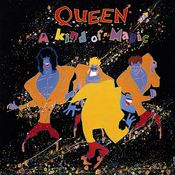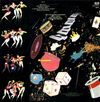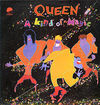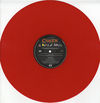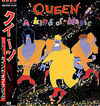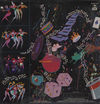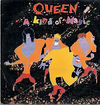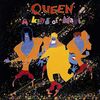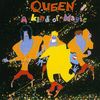From Queenpedia.com
(→LP Releases) |
(→CD Releases) |
||
| Line 300: | Line 300: | ||
==CD Releases== | ==CD Releases== | ||
'''''Click to enlarge thumbails''''' | '''''Click to enlarge thumbails''''' | ||
| + | {| | ||
| + | |valign="top"|[[Image:akomholcd.jpg|100px]] | ||
| + | |valign="top" style="width:100px;"|[[Image:akomholcdrev.jpg|100px]] | ||
| + | |valign="top" style="width:200px;"|'''Released:''' 2001 | ||
| + | |||
| + | '''Country:''' Holland | ||
| + | |||
| + | '''Record Label:''' EMI | ||
| + | |||
| + | '''Catalog number:''' | ||
| + | |||
| + | |valign="top"|[[Image:akomusacd.jpg|100px]] | ||
| + | |valign="top" style="width:100px;"|[[Image:akomusacdrev.jpg|100px]] | ||
| + | |valign="top" style="width:200px;"|'''Released:''' 2004 | ||
| + | |||
| + | '''Country:''' USA | ||
| + | |||
| + | '''Record Label:''' Capital | ||
| + | |||
| + | '''Catalog number:''' | ||
| + | |||
| + | |--- | ||
| + | |} | ||
| + | ---- | ||
{| | {| | ||
|valign="top"|[[Image:magicjpn2001.jpg|100px]] | |valign="top"|[[Image:magicjpn2001.jpg|100px]] | ||
| Line 306: | Line 330: | ||
'''Country:''' Japan | '''Country:''' Japan | ||
| + | |||
| + | '''Record Label:''' | ||
'''Catalog number:''' | '''Catalog number:''' | ||
| - | |||
| - | |||
|valign="top"|[[Image:magicjpn2004.jpg|100px]] | |valign="top"|[[Image:magicjpn2004.jpg|100px]] | ||
| Line 316: | Line 340: | ||
'''Country:''' Japan | '''Country:''' Japan | ||
| + | |||
| + | '''Record Label:''' | ||
'''Catalog number:''' | '''Catalog number:''' | ||
| - | |||
|--- | |--- | ||
|} | |} | ||
Revision as of 15:24, 1 September 2007
Prior to Live Aid, Queen had originally envisioned taking 1986 off, resuming recording and touring duties in 1987. The tour in support of The Works had been less than enjoyable, and by the time the band reached their final dates in the spring of 1985, they were almost literally counting down the days until their extended break. However, the response they received on 13 July 1985 changed all that, and they suddenly found themselves invigorated again, and their plans were suitably changed. According to John, it was Freddie who suggested the band go into the recording studios and try to collaborate on some material; in September 1985, the band entered Mountain Studios, and after two weeks, One Vision was born. It was just the shot in the arm the band needed, and they started work on their twelfth studio album. During the sessions, the band were approached by director Russell Mulcahy, who was working on his first feature-length film, Highlander, starring Christopher Lambert and Sean Connery. The director asked if the band would be interested in providing the theme song to the film and, after viewing twenty minutes of the rough cut, the band were so taken with the story that they offered to provide the entire soundtrack. However, the band had learned their lesson the prior times they had worked on soundtracks, and decided to have the new album feature a handful of songs in the film, while the remainder would be separate from the project entirely. Work began on the album later in the autumn of 1985, after One Vision had been issued as a single (and featured in the film Iron Eagle but, strangely, would not be used in Highlander), with the band working simultaneously at Townhouse Studios, Mountain Studios, and Musicland Studios. As before, the band fell into old habits, often working solo on his own songs, which explains the odd instrumentation line-ups: John plays rhythm guitars on Pain Is So Close To Pleasure and Don't Lose Your Head, and decided against having any guitar whatsoever on One Year Of Love. Brian's Who Wants To Live Forever is, essentially, a duet between Freddie and Brian, with orchestral accompaniment by the London Philharmonic Orchestra; the percussion was played by the orchestra and programmed by Brian. The title track had been written completely by Roger before it was taken away by Freddie, who added the trademark bass guitar riff and turned it from a cinematic rock song (as heard in the closing credits of Highlander) into an infectious pop song. Additional material recorded during these sessions include an early take of Heaven For Everyone, which would later be recorded by The Cross in 1987 and issued on their debut album. Reportedly, Roger's assistant, Crystal Taylor, expressed preference of that song over Roger's other submissions, and later called it "the biggest hit Queen never had" (indeed, in 1995, the song would be re-recorded for Made In Heaven, and provided Queen with a massively successful hit single). Love Makin' Love, an outtake from Freddie's first solo album, was submitted and recorded during these sessions, but remains unreleased, while a cover of New York, New York, perhaps the most sought-after unreleased Queen recording, was also submitted to tape and featured only in the Highlander film. Queen Productions have emphatically stated that a full recording doesn't exist. The album was released in June 1986, to almost critical indifference. While the album peaked at #1 (the band's first Number One record since The Game) and the singles all did well (One Vision, #7; A Kind Of Magic, #3; Friends Will Be Friends, #14; and Who Wants To Live Forever, #24), the album featured only nine songs, with one (One Vision) having been released back in November 1985, meaning that only eight "new" songs were presented. Critics were also quick to note the abundance of synthesizers and drum programming; it's likely that the album sold so well not only because of Queen's grandstanding at Live Aid, but also because of the announcement of Queen's largest UK/European tour to date, which commenced a week after the album's release. Because of the recent boom of compact discs (the album became Queen's first new release to appear on CD, though The Game was Queen's first album to appear on the format), additional material was issued: extended remixes of A Kind Of Magic and Friends Will Be Friends (titled A Kind Of 'A Kind Of Magic' and Friends Will Be Friends Will Be Friends..., respectively) and an instrumental version of Who Wants To Live Forever (titled Forever) were released as bonus material. In 1991, when Hollywood Records acquired Queen's back catalog, only Forever and the extended remix of One Vision were issued.
Tracklists
Credits
Charts
Liner notesSpecial thanks to: Gerry Stickells, Russel Mulcahy, Peter Davies, Bill Panzer, Julie Nash, Sally Green, Jackie Gunn, Melanie Martin, Collie, Peter Freestone, Joe Fannelli, Tony Williams, Derek Power, Peter Chant, Neal Levin, Sidney Sachs, Stefan, Clive Martin, Spike Drake, Noel Harris, Trip Khalaf and all at EMI-Capitol Records worldwide. Some songs on this album appear in different form in the film ‘Highlander’ Sleeve design by Richard Gray Front cover illustration by Roger Chiasson Other original illustration by Roger Chiasson, Mike Smith and Chuck Gamage. Colour by Jenny Robinson. Photography by Peter Hince
Additional info
Queen TalksFreddie Mercury - 1986, Unknown We all have our own ideas of how song should be, because I mean a song can be done in so many different ways, depending on of who is doing it. But sometimes I just feel that it’s not right and like in case of Roger’s track which is Magic, I mean, he did it in totally different way, which is quite good, but I just felt that it was another commercial streak, and I just realized that he was going away to LA, and I just got hold of it. I just changed the arrangement completely. And when he came back, I sad: “What do you think?’ and he said “Oh, I like it!”. It was completely different song, but you know, it’s something, sometimes you can see something else in other people’s songs, and… You know, I don’t mind them do that my songs as well, we’re all help each other in the way, but that takes a lot of time. The whole thing, I mean, of group policy is first of all that the group couldn’t agree on the one single. Because I mean it was to do with the film and it also to do with the new Queen product. Because what’s happened – I think for the first time in Queen’s life – is that we were actually made a film soundtrack, but we’ve also made a Queen album – so, we had to trying let people know that it’s not just a soundtrack, because we’ve got other songs as well. So it’s hard to depict, that it’s not all one soundtrack, and it’s not just Queen. We had to trying bringing two projects together. And so, I mean, within the members of the band as well, we were fighting as to who liked which song. So we couldn’t agree at all, and basically what happened in the end – we decided there should be two singles, released synchronously in different territories, and because the film is out in America first, we wanted to go with the Princes which goes with the film. But over here (Great Britain) we released Magic, because we thought that if we’ll release Princess to go with the film, then nobody is gonna see film here till about July, and they have got to know, what it means. So, sometimes you have to sort of get that diplomacy, and work out things. So, in America they’ve got Princes of the Universe, over here is Magic. To start of, it was a Queen project as such anyway, but we did only like five tracks to go in the film, and there’s about nine tracks now… Is it nine? Yes, about nine tracks. So these additional tracks, which are not in the film – so it is a Queen, a new Queen album anyway.
ReviewsThe Times, 1986 Queen's 14th album, A Kind of Magic, sold 100,000 copies in the seven days after its release, and entered the British chart at number one. A week later Invisible Touch by Genesis replaced it at the top of the chart. Clearly, these are two of the most spectacularly successful releases this year, yet hardly a good word has been said about either in the press. What is their appeal, and why does it not extend to those of us who are given the records to review? Both groups employ musicianship and production values of the very highest standard to create albums of an unvarying and predictable quality, giving good value for money but providing no new insights. Queen's album already contains three hit singles, 'One Vision', 'Friends Will Be Friends' and the title track. Freddie Mercury does a fine camp imitation of Diana Ross on 'Pain Is So Close To Pleasure', and elsewhere there are baroque metal anthems, like 'Princes of the Universe' with its Aryan sentiments, that have as much chic as a set of flying ducks on the wall. While Queen flaunt their lack of concern for the fashionable mores, Genesis try a bit harder to gain the credible vote. Having divested themselves of their earlier penchant for long, rambling 'conceptual' arrangements, they now go for a lighter, soul-tinged pop rock approach and end up sounding like the Phil Collins Band. 'Anything She Does' has a swift, crisp beat and synthesizer horn sounds while 'The Last Domino' romps along to a Seventies neo-disco beat. Additional Reviews
LP ReleasesClick to enlarge thumbails
CD ReleasesClick to enlarge thumbails
Cassette Releases
|
||||||||||||||||||||||||||||||||||||||||||||||||||||||||||||||||||||||||||||||||||||||||||||||||||||||||||||||||||||||||||||||||||||||||||||
